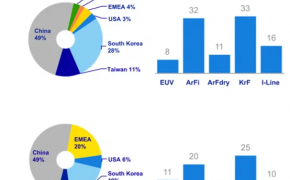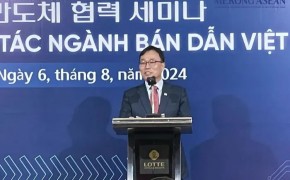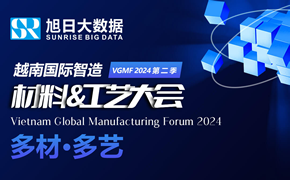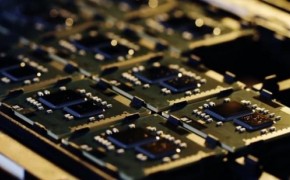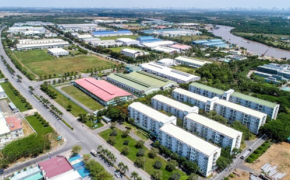近日越南政府与韩国、日本政企各界互动频繁,一方面是越南极力邀请日、韩企业帮助越南发展半导体等前沿技术进行产业升级,另一方面是日、韩企业对越南政府提出与中国大陆、印度或其它东盟国家类似的投资成本现金补贴政策,以降低日、韩企业在越南的投资成本开支。
目前韩国仍是越南第一大投资伙伴,注册资金总额近875亿美元(占总投资资金的18%)。韩国投资资金不仅集中于工业生产、加工制造领域,还扩展到建筑、房地产、流通、零售等新领域。
越南政府总理范明正于6月30日至7月3日对韩国进行正式访问期间出席了越韩商务论坛。在论坛上,双方签署了23份涉及到投资、贸易、能源转换、生物技术、工业园区建设、半导体、技术、医学与制药、航空、物流、信息技术、机械工程等领域的合作协议。
其中,越南Sovico集团和韩国晓星集团希望合作推进数据中心、金融科技、可再生能源、金融、智慧城市、物流等房地产业务领域的投资。
越南制药公司(Vinapharm)和Celltrion制药集团签署了一份谅解备忘录,将在越南建立一家生产生物制药和医药产品的公司,供应越南市场和其他市场。此外,MH集团股份公司与UNISCAN有限公司签署了为期5年、价值高达6亿美元的谅解备忘录。
在论坛上,北宁省人民委员会还向新加坡科技公司Amkor颁发了位于安丰工业区的半导体材料和设备制造、组装和测试工厂项目调整的投资证书,增资金额超过10.7亿美元。与此同时,北宁省人民委员会还与韩国不动产公社签署了北宁省北宁市东南城区发展谅解备忘录。
范明正总理重申,一向欢迎并祝愿韩国领先企业在“全球、全面、全民”的基础上继续扩大投资与合作,实现2025年双边贸易额1000亿美元、到2030年达1500亿美元的目标。
针对韩国企业在越南投资环境上的疑虑,范明正总理表示将责成越南各部委、地方认真吸纳关于吸引投资、改善营商环境、增强竞争力的意见和建议;以此为基础,创造性、有效性地将其运用到越南的发展实践中。范明正总理强调,越南政府愿倾听、陪伴、支持外国投资者,特别是韩国投资者在越南顺畅、有效和可持续地投资和开展业务,并为此创造有利条件。
另外越南半导体产业未来研讨会7月9日在日本东京举行,主题为“新时代越日间的机遇与期待”。此次研讨会将为两国各机构和企业发挥各自优势开辟新的更大机遇。
越南驻日本大使范光校在研讨会开幕式上致辞时表示,越南各部委正在研究制定半导体产业发展战略和人力资源开发项目以及适当的激励机制,以吸引包括日本在内的外国半导体企业赴越南投资。
今后,越南将促进半导体产业人力资源培训,力争到2030年培养5万名工程师,同时构建国家半导体产业生态系统。越南希望与日本机构和企业在半导体领域合作,促进投资、技术转让合作、人力资源交流,使越南更深层次融入全球供应链。
国家创新中心(NIC)副主任武春怀表示,目前,NIC正向政府提交2030年半导体产业发展战略和2050年愿景。从现在到2030年,越南将重点发展半导体和高技术领域的高素质人力资源开发。越南和日本政府、高等院校、企业、研究院等的合作潜力巨大。
有关FDI的数据表明,在全球供应链重组的背景下,外国投资企业继续将越南视为中长期重要的投资目的地;FDI实际到位资金和注册资金的双重增加将进一步推动未来几个季度的国内活动,包括建筑和就业。
越南极力拉拢日、韩企业投资的目的,是目前全球正处在AI人工智能投资的大浪潮中,而AI硬件终端将是真正打开AI市场应用的主要制造业投资领域。越南虽然吸引了大部分的AI硬件终端组装产能落地,但由于这些产能投资的门槛较低,越南希望能往更上游的半导体制造领域延伸,在为本土AI硬件终端制造产能配套的同时,也以半导体产业配套服务,长久的稳住这些产能留在越南。
近期越南计划投资部(MPI)却在一份提升越南投资环境的文件中表示,由于越南的投资配套服务不到位,近期除了错失多个大型项目落地外,越南最大的投资企业三星最近表示,如果越南拿不出合适的投资补贴计划,未来有可能将把生产线迁往印度,LG暂停其生产价值50亿美元电子产品的新投资计划,日本SMC正在考虑在同奈省投资5亿至10亿美元的计划是否要搁置。
越南计划投资部在一份关于投资支持基金的设立、管理和利用的报告中指出了这一趋势。计划部投资表示,三星、英特尔和LG等外国公司都曾考察过越南的潜在投资机会,但在调研越南的投资环境后最终决定将其数十亿美元的项目投资到其他国家,或等待越南的政策回应。
计划投资部认为,在全球产业链重构过程中,许多国家都在积极吸引高科技投资,包括半导体、卫星网络、人工智能(AI)和芯片生产等领域,这些都是全球趋势。其中包括美国、韩国、印度、中国和欧洲国家以及新加坡、马来西亚、印度尼西亚和泰国等邻国,都对大型项目的投资,提供了多种多样且具有吸引力的激励措施。这些激励措施包括基于收入的福利(免税和减税)和基于成本的激励措施,支持方案高达数十亿美元。
日、韩企业是越南吸引外资的主力军,越南市场上的中高端产品大部分是两个国家投资建设完成。近年来随着苹果供应链转移与“中国+1”的影响,尽管越南外国投资稳步增长,但越南仍少有大型高科技投资项目落地。针对这一现象,包括日、韩企业在内的全球投资者,也希望越南能够尽快改善投资环境,尽快把前期积累的投资案快速落地,迎接日、韩投资的新一波浪潮。
On the one hand, Vietnam strongly invites Japanese and Korean companies to help Vietnam develop cutting-edge technologies such as semiconductors for industrial upgrading, and on the other hand, Japanese and Korean companies have proposed cash subsidy policies for investment costs similar to those of Chinese mainland, India or other ASEAN countries to reduce the investment costs of Japanese and Korean enterprises in Vietnam.
At present, South Korea is still Vietnam's largest investment partner, with a total registered capital of nearly US$87.5 billion (accounting for 18% of the total investment capital). Korean investment funds are concentrated not only in the fields of industrial production and processing, but also in new fields such as construction, real estate, distribution, and retail.
Prime Minister Pham Minh Chinh attended the Vietnam-Korea Business Forum during his official visit to the Republic of Korea from June 30 to July 3. At the forum, the two sides signed 23 cooperation agreements in the fields of investment, trade, energy conversion, biotechnology, industrial park construction, semiconductors, technology, medicine and pharmaceuticals, aviation, logistics, information technology, mechanical engineering and other fields.
Among them, Vietnam's Sovico Group and South Korea's Hyosung Group hope to cooperate to promote investment in real estate business areas such as data centers, financial technology, renewable energy, finance, smart cities, and logistics.
Vietnam Pharmaceutical Company (Vinapharm) and Celltrion Pharmaceutical Group signed a memorandum of understanding to establish a company in Vietnam to produce biopharmaceuticals and pharmaceutical products to supply the Vietnamese market and other markets. In addition, MH Group AG signed a five-year memorandum of understanding with UNISCAN GmbH valued at up to US$600 million.
At the forum, the Bac Ninh Provincial People's Committee also awarded Amkor, a Singapore-based technology company, an investment certificate for the restructuring of the semiconductor materials and equipment manufacturing, assembly and testing plant project in An Phong Industrial Park, with an additional capital increase of more than US$1.07 billion. At the same time, the Bac Ninh Provincial People's Committee also signed a memorandum of understanding with the Korea Real Estate Corporation for the development of the southeast urban area of Bac Ninh City, Bac Ninh Province.
Prime Minister Pham Minh Chinh reiterated that he always welcomes and wishes South Korea's leading companies to continue to expand investment and cooperation on a "global, comprehensive, and all-people" basis, and achieve the goal of bilateral trade volume of US$100 billion by 2025 and US$150 billion by 2030.
In response to the doubts of Korean companies about the investment environment in Vietnam, Prime Minister Pham Minh Chinh said that he would instruct all ministries and localities in Vietnam to seriously absorb opinions and suggestions on attracting investment, improving the business environment and enhancing competitiveness. based on this, we will creatively and effectively apply it to Vietnam's development practice. Prime Minister Pham Minh Chinh stressed that the Vietnamese government is ready to listen, accompany and support foreign investors, especially South Korean investors, to invest and conduct business in Vietnam smoothly, effectively and sustainably, and create favorable conditions for this.
In addition, the Vietnam Semiconductor Industry Future Seminar was held in Tokyo, Japan on July 9 with the theme of "Opportunities and Expectations between Vietnam and Japan in the New Era". The symposium will open up new and greater opportunities for institutions and enterprises in the two countries to give full play to their respective advantages.
Speaking at the opening ceremony of the seminar, Vietnamese Ambassador to Japan Pham Quang Thiao said that Vietnamese ministries are studying and formulating semiconductor industry development strategies and human resource development projects, as well as appropriate incentive mechanisms to attract foreign semiconductor companies, including Japan, to invest in Vietnam.
In the future, Vietnam will promote human resource training in the semiconductor industry, aim to train 50,000 engineers by 2030, and build a national semiconductor industry ecosystem. Vietnam hopes to cooperate with Japanese institutions and enterprises in the field of semiconductors, promote investment, technology transfer cooperation, and human resource exchanges, so that Vietnam can be more deeply integrated into the global supply chain.
Wu Chunhuai, deputy director of the National Innovation Center (NIC), said that at present, NIC is submitting the 2030 semiconductor industry development strategy and 2050 vision to the government. Between now and 2030, Vietnam will focus on the development of high-quality human resources in the fields of semiconductors and high technology. There is great potential for cooperation between the Vietnamese and Japanese governments, universities, enterprises, research institutes, etc.
The data on FDI shows that in the context of global supply chain restructuring, foreign-invested companies continue to see Vietnam as an important investment destination in the medium to long term; The dual increase in FDI real funds on hand and registered capital will further boost domestic activity in the coming quarters, including construction and employment.
The purpose of Vietnam's efforts to attract investment from Japanese and South Korean enterprises is that the world is currently in the midst of a big wave of AI investment, and AI hardware terminals will be the main manufacturing investment areas that will truly open up the application of the AI market. Although Vietnam has attracted most of the AI hardware terminal assembly capacity, due to the low threshold for investment in these production capacity, Vietnam hopes to extend to the semiconductor manufacturing field further upstream, and at the same time provide supporting capacity for local AI hardware terminals, but also provide supporting services for the semiconductor industry to stabilize these production capacity in Vietnam for a long time.
Recently, Vietnam's Ministry of Planning and Investment (MPI) said in a document to improve Vietnam's investment environment that due to Vietnam's investment supporting services are not in place, in addition to missing a number of large-scale projects recently, Vietnam's largest investment company Samsung recently said that if Vietnam can't get a suitable investment subsidy plan, it is possible to move the production line to India in the future, LG suspended its new investment plan to produce electronic products worth 5 billion US dollars, Japan's SMC is considering whether a plan to invest between $500 million and $1 billion in Dong Nai province should be shelved.
This trend was noted by the Ministry of Planning and Investment of Viet Nam in a report on the establishment, management and use of investment support funds. Foreign companies such as Samsung, Intel and LG have all looked at potential investment opportunities in Vietnam, but after researching Vietnam's investment environment, they have decided to invest their billions of dollars in other countries or wait for Vietnam's policy response, according to the Ministry of Planning.
The Ministry of Planning and Investment believes that in the process of restructuring the global industrial chain, many countries are actively attracting high-tech investment, including semiconductors, satellite networks, artificial intelligence (AI) and chip production, which are all global trends. These include the United States, South Korea, India, China and European countries, as well as neighbouring countries such as Singapore, Malaysia, Indonesia and Thailand, all of which offer a variety of attractive incentives for investment in large-scale projects. These incentives include income-based benefits (tax exemptions and tax deductions) and cost-based incentives, supporting programs in the billions of dollars.
Japanese and South Korean enterprises are the main force in attracting foreign investment in Vietnam, and most of the mid-to-high-end products in the Vietnamese market are invested and constructed by the two countries. In recent years, with the transfer of Apple's supply chain and the impact of "China+1", although foreign investment in Vietnam has grown steadily, there are still few large-scale high-tech investment projects in Vietnam. In response to this phenomenon, global investors, including Japanese and Korean companies, also hope that Vietnam can improve the investment environment as soon as possible, quickly implement the investment projects accumulated in the early stage, and welcome a new wave of Japanese and Korean investment.
